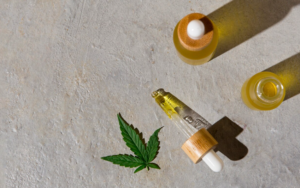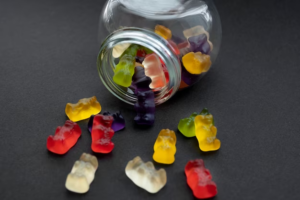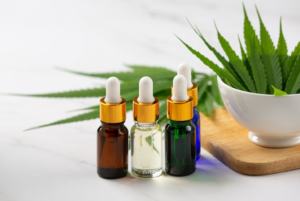
CBD oil, like many health supplements, does not remain potent indefinitely. Every consumable product has an expiration, and just like perishables, CBD oil too has a limited lifespan. While we cannot ascertain the exact expiration with pinpoint accuracy, it’s evident that the efficacy of CBD oil dwindles over time.
Certainly, CBD oil does expire. Recognizing the signs of expiration and being informed on prolonging its potency is vital for consumers.
In this guide, we will demystify the shelf life of CBD, the signs that indicate its degradation, strategies to extend its longevity, and more.
Determining the Lifespan of CBD Oil
Contrary to popular belief, CBD oil is not eternal. Typically, if stored under optimum conditions, its shelf life ranges from 12 to 18 months. However, with time, the product’s quality will decline, making it less potent and effective.
It is possible to elongate the longevity of CBD oil by implementing preventive strategies and opting for top-tier, reputable brands. The durability of CBD oil is often influenced by the manufacturing techniques, extraction procedures, and quality assurance processes adopted by the brand.
Several factors influence the longevity of CBD oil:
- Ingredients: The constituents of the oil play a pivotal role. For instance, lackluster quality checks can lead to contamination, which may include mold, heavy metals, and harmful microbes. Additionally, added flavorings also have their own expiration, which can impact the overall shelf life of the product.
- Storage: A common oversight, inappropriate storage can hasten the degradation of CBD oil. Both sellers and users can sometimes expose the oil to unfavorable conditions, thus diminishing its potency.
- Extraction Techniques: The majority of producers nowadays harness CO2 for extraction due to its superior efficacy and purity. Yet, a few brands resort to older, less reliable methods like alcohol or butane extraction. These methods can introduce impurities, compromising the product’s longevity.
Identifying Degraded CBD Oil
Discerning whether CBD oil has lost its potency can be a challenge. A significant indicator is its odor. A degraded CBD oil often emits a pungent, rancid aroma, akin to spoiling vegetables.
Other signs include:
- A shift in color to a darker shade.
- A change in consistency from thick to runny.
- A noticeable cloudy residue on the bottle’s inner surface.
The Risks of Using Stale CBD Oil
While consuming stale CBD oil is not inherently harmful, it’s advisable to stay cautious. Generally, such oil loses its potency and won’t offer the desired therapeutic effects. However, in large quantities, its consumption can lead to minor discomfort, particularly if the aroma has turned sour. Ensuring you purchase from reliable, third-party verified sources offers an additional layer of safety.
Understanding the Varieties of CBD Oil
As the demand for CBD oil skyrockets, the market has seen an influx of varied products, each with its unique properties and benefits. However, for the uninitiated, navigating this vast ocean of options can be daunting. Let’s break down the distinct varieties of CBD oil to empower consumers to make informed decisions tailored to their needs.
Full-Spectrum CBD Oil
At the top of the list is full-spectrum CBD oil. As the name suggests, this oil contains the full spectrum of cannabinoids present in the cannabis plant. This means that it not only contains CBD but also other compounds like THC (usually in traces below 0.3% for hemp-derived products), terpenes, and flavonoids. The combined effect of all these compounds working together is often referred to as the ‘entourage effect,’ believed to amplify the therapeutic properties of each individual compound.
Prolonging the Efficacy of Your CBD Oil
After procuring a product of your choice, there are several measures to adhere to to maximize its shelf life:
- Temperature Control: Store the oil in cooler surroundings, devoid of direct heat, to preserve its integrity. While refrigeration isn’t mandatory, maintaining it at room temperature is ideal.
- Shield from Sunlight: Direct exposure can adversely affect the product. It’s best to store it in a darkened area like a cabinet.
- Airtight Containers: Sealed containers prevent air intrusion, extending the product’s shelf life.
- Avoid Heat Sources: Keep away from stoves or ovens, as excessive heat can negatively impact the oil’s effectiveness.
Purchasing from distinguished brands ensures minimal contamination, which is a pivotal factor for product longevity.
Impurities and Their Impact on Quality
All CBD oils are not manufactured uniformly. The product’s efficacy and shelf life can be affected by various contaminants. These include pesticides, heavy metals, and certain solvents. High-quality CBD products maintain purity, while subpar ones can contain undesirable compounds that can diminish the oil’s therapeutic value.
Investing in Third-Party Verified CBD
Given the inundation of CBD products in the market, selecting a reliable source is paramount. Opt for vendors like Colorado Botanicals, which upholds rigorous manufacturing standards and ensures consumer safety.
Molecular Breakdown of CBD:
All molecules, including those in CBD oil, are subject to entropy or the natural process of decay. Over time, the chemical compounds in CBD oil, such as cannabinoids, terpenes, and flavonoids, will begin to break down. When exposed to environmental factors like oxygen, light, and heat, this breakdown can accelerate. Once these compounds degrade, the oil loses its potency.
Oxidation and CBD Oil:
Oxidation is one of the primary causes of CBD oil degradation. When CBD oil interacts with oxygen, it results in the formation of oxidative stress, compromising the oil’s molecular integrity. This oxidative stress leads to the oil becoming less effective over time.
Effects of Ultraviolet (UV) Radiation:
Direct exposure to sunlight is especially harmful to CBD oil. Sunlight emits UV radiation, which can lead to rapid degradation of cannabinoids. This process not only reduces the potency of the oil, but can also lead to the development of harmful peroxides.
Importance of Carrier Oils:
CBD is typically suspended in carrier oils like coconut oil, hemp seed oil, or MCT oil. These carrier oils can have their own degradation processes, which can affect the shelf life of the CBD product. Some carrier oils are more stable than others, thus providing a longer shelf life for the CBD oil.
Ensuring Freshness: Regularly Check Your Product
Routine checks of your CBD oil can help you identify early signs of degradation. Just as you would inspect perishable items in your pantry or refrigerator, periodically assessing the quality of your CBD oil is essential for optimal efficacy. This includes checking for changes in color, consistency, and aroma.
Diversifying Your CBD Intake
As CBD gains popularity, there are numerous products available in the market beyond oils. CBD-infused products like gummies, capsules, and topical offer different shelf lives and storage requirements. Exploring these options can provide consumers with alternatives that may fit better into their lifestyles and preferences.
Recycling Old CBD Oil
If you’ve identified that your CBD oil has expired, it’s not necessarily a waste. Some individuals use older CBD oil for topical applications, like moisturizing the skin. While the therapeutic benefits might be reduced, it can still provide moisturizing benefits due to the carrier oil. However, always ensure that there are no mold or other contaminants before using it on the skin.
Educating Yourself: The Key to Safe Consumption
Just like any product, the more you know about CBD oil, its properties, and degradation patterns, the safer and more informed your consumption will be. Attend seminars, read up on the latest research, or join online forums dedicated to CBD enthusiasts. Knowledge is power, and in this case, it’s also the key to safe and effective CBD oil use.
Conclusion
CBD oil has risen to prominence as one of the most discussed natural health remedies in recent years. It offers astounding therapeutic benefits for many individuals. However, like any consumable product, it has an expiration date. Understanding the longevity of CBD oil and how to store it properly can significantly enhance the product’s efficacy and ensure its safety for the user.
Purchasing a high-quality product from a trusted supplier, storing it correctly in a cool and dark place, and avoiding direct heat and light sources can substantially extend the lifespan of your CBD oil. Additionally, consumer education and ongoing research in this field will help us all maximize the benefits CBD offers.
In the end, taking care of your product and informed consumption will be key to deriving the most benefit from your CBD oil. We hope the information presented in this article enriches your experience and guides you in making informed decisions regarding your product’s care.
FAQ
1. How long can CBD oil be stored?
Typically, CBD oil maintains its properties for 12 to 18 months with proper storage.
2. What are the signs that CBD oil has gone bad?
Changes in color, texture, and scent, as well as cloudy sediment inside the bottle, can be indicators.
3. What are the risks of consuming expired CBD oil?
Primarily, expired oil will be less potent. However, in larger doses, it might induce unpleasant sensations.
4. How should CBD oil be stored correctly?
In a cool, dark place, away from direct sources of heat and light. It’s not mandatory to keep it in the refrigerator, but doing so can help extend its life.





